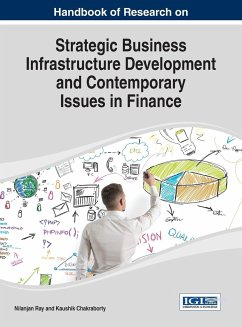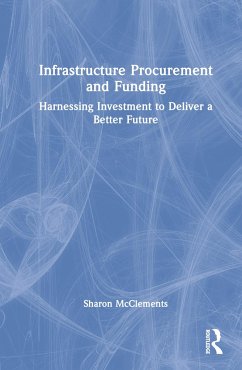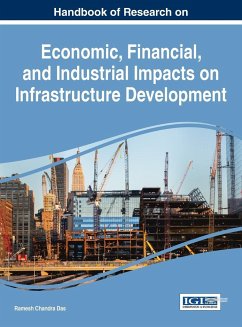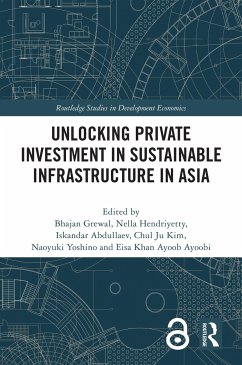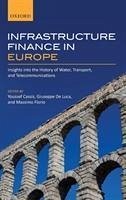
Infrastructure Finance in Europe
Insights Into the History of Water, Transport, and Telecommunications
Herausgeber: Cassis, Youssef; Florio, Massimo; De Luca, Giuseppe
Versandkostenfrei!
Versandfertig in 1-2 Wochen
173,99 €
inkl. MwSt.

PAYBACK Punkte
87 °P sammeln!
Funding infrastructure has always been a challenging issue in any country and at any time, yet the topic is still largely unexplored. The social returns of investment in water, roads, railways, or more recently telegraph or communication satellites are often apparent in the long run, but this distant horizon poses special problems to governments and investors. This volume provides a broad overview of the main financing solutions implemented in Europe to support infrastructures from the fall of the Roman Empire up to the end of the 20th century. It explores the diverse historical paths pursued ...
Funding infrastructure has always been a challenging issue in any country and at any time, yet the topic is still largely unexplored. The social returns of investment in water, roads, railways, or more recently telegraph or communication satellites are often apparent in the long run, but this distant horizon poses special problems to governments and investors. This volume provides a broad overview of the main financing solutions implemented in Europe to support infrastructures from the fall of the Roman Empire up to the end of the 20th century. It explores the diverse historical paths pursued in order to solve the problem of infrastructure finance in various European countries, and draws upon the findings of an international and interdisciplinary research project. It brings together case studies by economic historians, economists, and engineers, and the clear taxonomy guides the reader through the financing solutions that have been developed to fund infrastructure over almost three thousand years. The volume is organized into four parts; after an introductory chapter by the editors, Part One offers 'horizontal' contributions that cover the history of European infrastructure finance. Parts Two, Three, and Four each focus on a single sector, namely water, transport, and telecommunications. The findings show how history can inform thinking on contemporary infrastructure problems.



